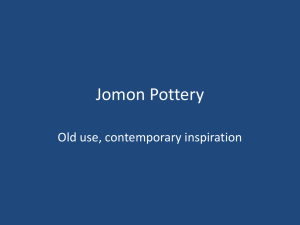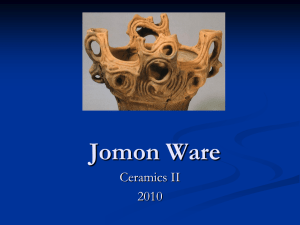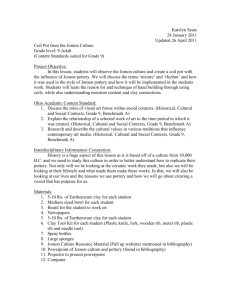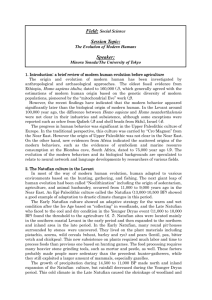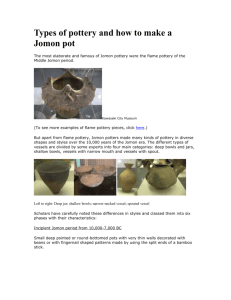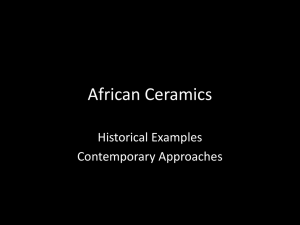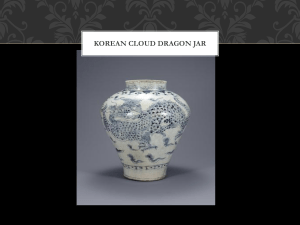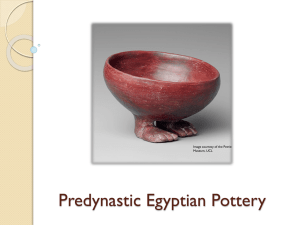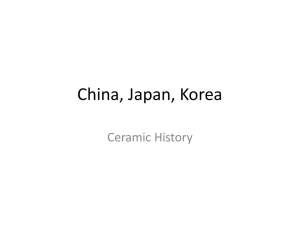Jomon Pottery Powerpoint
advertisement
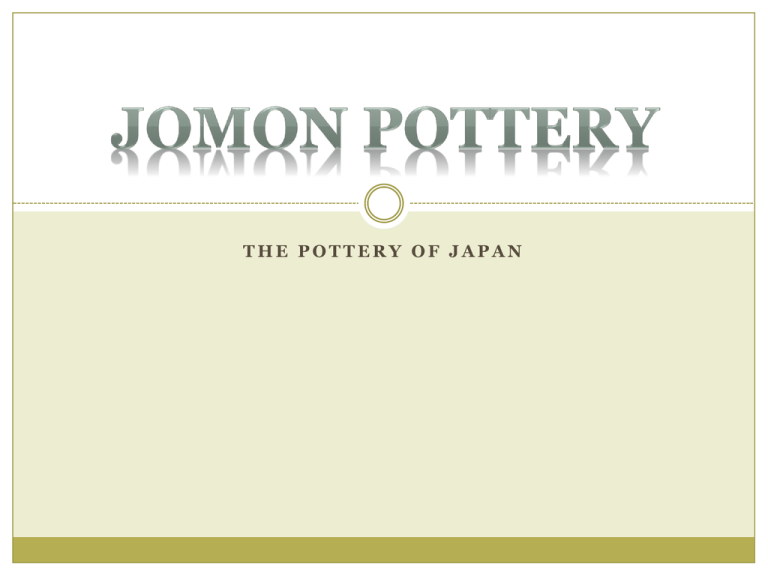
THE POTTERY OF JAPAN Jomon Pottery Early Jomon Middle Jomon Late Jomon An Intro… The pottery created during the Jomon period in Japan are generally accepted to be the oldest pottery in the world. The Jomon period was ca. 10,500–ca. 300 B.C. The name Jomon is derived from “cord markings” which adorns the pottery. All Jomon pots were built by hand, by women, and with a coil method. "All Jomon pots were made by hand, without the aid of a wheel, the potter building up the vessel from the bottom with coil upon coil of soft clay. As in all other Neolithic cultures, women produced these early potteries. The clay was mixed with a variety of adhesive materials, including mica, lead, fibers, and crushed shells. After the vessel was formed, tools were employed to smooth both the outer and interior surfaces.” - Metropolitan Museum of Art Jomon Pottery Beginning of Pottery There has been much debate as to whether or not the Jomon people invented pottery. The people lived near the sea in Japan and their diets consisted mostly of sea food. The Jomon used pottery for trading and keeping food. Pottery was used for transporting goods to other villages as well. Early Jomon Pottery Early Jomon pottery dates from ca. 5000–2500 B.C. The pottery was fired at temperatures no greater than 900 degrees. Early Jomon pottery is characterised by having flat bases and sides that show little of the creativity that occurred later on. Middle Jomon This period marked the high point of the Jomon culture in terms of production of handicrafts. “The basic form remained the straight-sided cooking or storage jar, but the rim now took on spectacular, flamboyant shapes... Middle Jomon potters made full use of the tactile quality of clay, bending and twisting it as well as incising and applying designs.” Middle Jomon During the middle Jomon period the climate was becoming colder and people were moving inland into the mountains. It is thought that the Jomon people started making more creative pottery to show up other communities. Instead of working on more advanced firing and building techniques the Jomon people were keen on fine-tuning their artistic skill Late Jomon Moving Backwards During the years of the Late Jomon period a severe decrease in population is noted. During this time religion and ritual activities gained steam. We see the Jomon people take a step back and once again create the simple cord-marked and incised pottery. More and more figurines were being made and the once beautiful pots returned to the old style. Late Jomon Shown here are 3 different examples of Late Jomon pottery. As you can see the two pots look very similar to early Jomon pottery. The figurine on the other hand is quite detailed compared to the simple pots.
